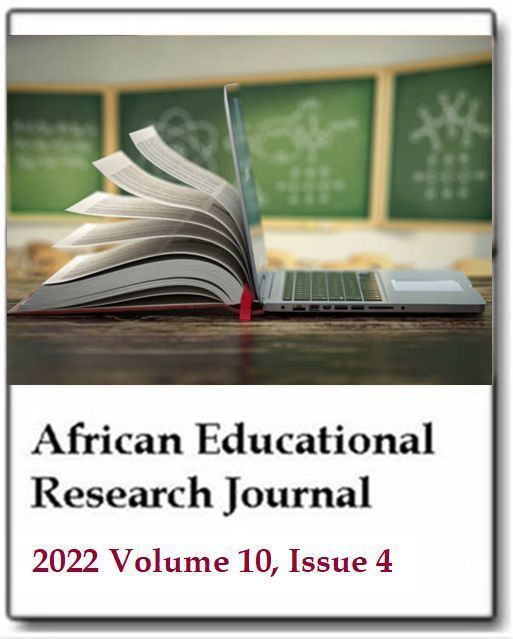Study of the relationship between digital citizenship and basic technology qualification levels of social studies teachers
Emre Hakdar, Hakkı Yazici and Mehmet Tamer KayaAfrican Educational Research Journal
Published: December 31 2022
Volume 10, Issue 4
Pages 454-464
DOI: https://doi.org/10.30918/AERJ.104.22.081
Abstract
The main purpose of this research is to determine whether digital citizenship and basic technology proficiency levels of social studies teachers are predictors of each other by examining it in terms of various variables. The research group of the study consists of 94 social studies teachers working in public schools of the central district of Afyonkarahisar province between 2021 and 2022. In the study, the screening method was used among quantitative research methods. To determine the digital citizenship levels of teachers “Digital Citizenship” and to specify the basic technology proficiency levels, “Basic Technology Proficiency for Educators” was used. At the end of the study, it was concluded that the digital citizenship levels of social studies teachers were intermediate. It has been observed that there is a significant difference between the digital citizenship levels of social studies teachers and the gender and social network usage variables. There has been no significant difference between the age variable and digital citizenship level. Basic technology proficiency levels of social studies teachers were determined to be intermediate. It has been concluded that there is a significant difference between the basic technology proficiency levels of social studies teachers and the gender variable. There was no significant difference between age and social network usage variables and the level of basic technology proficiency. In the correlation analysis to determine the relationship between the digital citizenship levels of social studies teachers and the basic technology proficiency levels, it was found that there was a moderate, positive and statistically significant relationship.
Keywords: Digital citizenship, basic technology proficiency, social studies.
Full Text PDFThis article is published under the terms of the Creative Commons Attribution License 4.0

